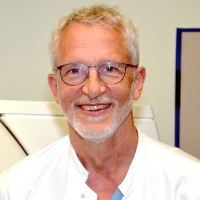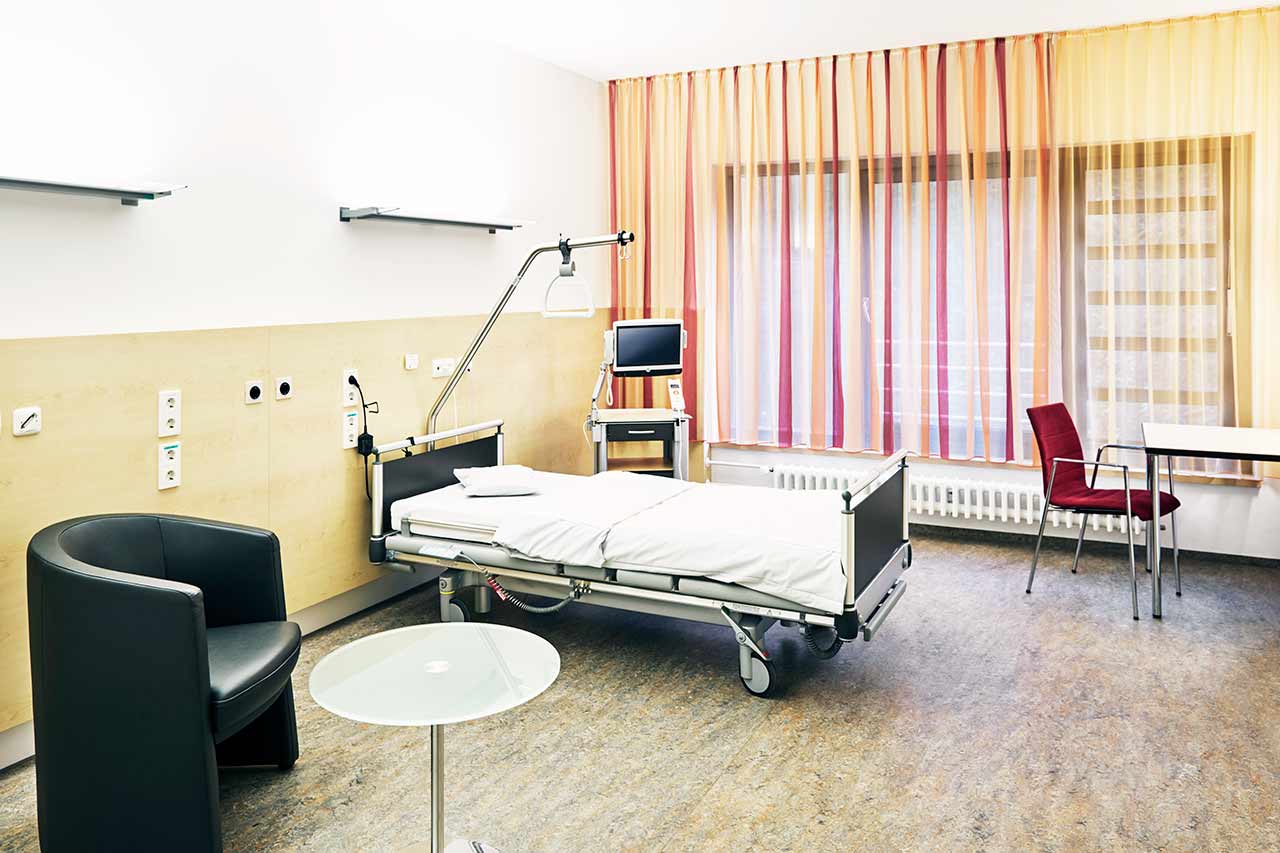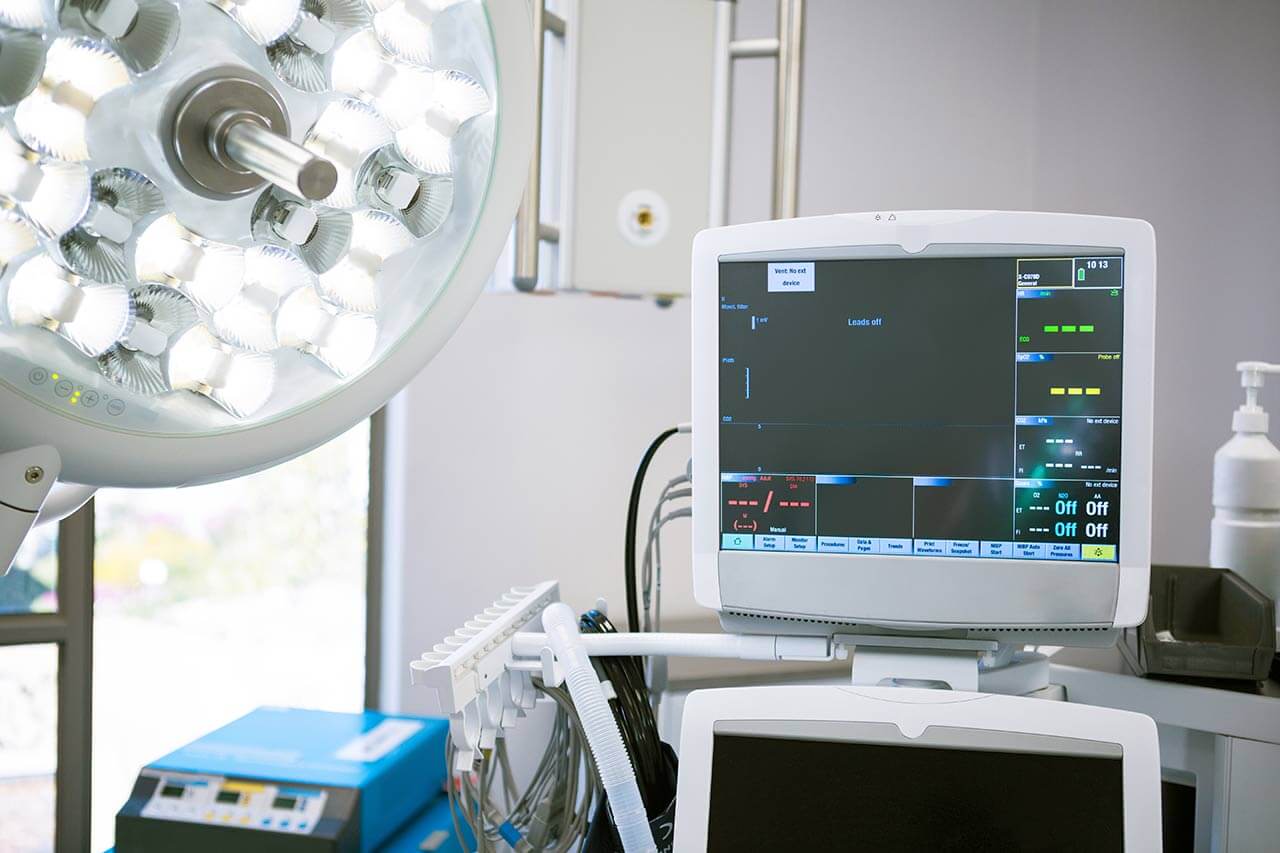
The program includes:
- Initial presentation in the clinic
- clinical history taking
- review of medical records
- physical examination
- laboratory tests:
- complete blood count
- biochemical analysis of blood
- Lipid metabolism (HDL/LDL, cholesterol,
triglycerides Lip(a), homocysteine) - blood coagulation analysis (aPTT, PT, INR)
- inflammation indicators (CRP, ESR)
- metabolic status (uric acid, total glucose, HbA1c)
- cardiovascular disease risk markers
- kidney function test (creatinine, urea)
- color doppler echocardiography
- color doppler sonography of cerebral peripheral vessels
- duplex peripheral arteries
- CT/ MRI-angiography of carotid vessels
- preoperative care
- percutaneous transluminal angioplasty
and stenting of carotid artery - blood transfusions (if needed)
- symptomatic treatment
- control examinations
- the cost of essential medicines and materials
- nursing services
- full hospital accommodation
- developing of further guidance
Required documents
- Medical records
- Ultrasound scan and angiography (if available)
Service
You may also book:
 BookingHealth Price from:
BookingHealth Price from:
About the department
The Department of Interventional Radiology at the Hospital Gummersbach Oberberg specializes in high-precision imaging tests and image-guided therapeutic procedures. The department's clinicians work hand in hand with doctors from all departments of the Hospital Oberberg Gummersbach: radiologists perform imaging tests (X-ray scans, CT scans, MRI scans, and others) at the request of doctors of various specialties. Treatment procedures under the guidance of CT, MRI, and angiography are an integral part of the department's daily clinical practice as well. Such therapeutic measures often allow the patient to avoid operation, and their effectiveness is comparable to classical surgery. The most demanded procedure is balloon angioplasty with stenting. This procedure allows doctors to successfully eliminate stenoses and obstructions in blood vessels in various locations. Modern interventional methods for the treatment of malignant tumors are also available here. The department is equipped with advanced medical and technical facilities, highly qualified doctors work here, and radiation protection standards are strictly observed. For the convenience of patients, the department is structurally divided into specialized diagnostic and therapeutic rooms with comfortable waiting areas. The Head Physician of the department is Dr. med. Achim Müller.
The department's specialists have extensive experience in performing balloon angioplasty with stenting. This treatment method is indicated for patients with vascular stenosis and obstruction. At the first stage of balloon angioplasty, the department's radiologists perform a small puncture in the femoral or radial artery, through which a long, thin catheter with a special balloon attached to it is advanced to the site of the narrowed blood vessel under imaging guidance. After the placement of the catheter in the desired position, the specialists inflate the balloon, which restores the lumen of the narrowed artery. At the final stage of the therapeutic manipulation, radiologists remove the balloon and implant a stent in its place, which keeps the walls of the blood vessel open, thereby ensuring normal blood flow and preventing recurrent stenosis. Balloon angioplasty is performed in the department under local anesthesia and takes about 30-40 minutes. This is a safe and effective treatment method and is also suitable for patients with comorbidities.
The medical facility regularly performs an embolization procedure. This is a method of treating tumors by blocking the blood vessels that supply them with special microscopic particles (emboli). Embolization is performed using catheter-based techniques through a puncture in the femoral artery under imaging guidance. If clinically indicated, the department's doctors use emboli containing chemotherapy drugs. In this case, the procedure is called chemoembolization. This method not only deprives the tumor of blood, but also delivers a chemotherapy drug to the tumor, greatly increasing the chances of destroying the tumor. Embolization and chemoembolization can be used as independent treatments, before surgery to shrink the size of the tumor, or for palliative purposes in patients with end-stage cancer.
The department's specialists also perform interventional procedures to treat chronic back pain. The doctors make CT-guided targeted injections of painkillers into the problem area, which is the source of pain. This treatment option is considered when conservative treatment fails. The spinal block is performed under local anesthesia, so the patient does not experience any discomfort. An important advantage of this therapeutic procedure is that it can be repeated if necessary.
The department offers the following image-guided interventional procedures:
- Balloon angioplasty with stenting
- Embolization
- Chemoembolization
- CT-guided interventional treatment of chronic back pain
- Other therapeutic procedures
Photo of the doctor: (c) Klinikum Oberberg GmbH
About hospital
The Hospital Oberberg Gummersbach is a medical complex that offers its patients top-class personalized care. The hospital was founded in 1985. Since then, it has earned an excellent reputation in the German medical arena and has gained vast experience in the provision of medical care to foreign patients. The Hospital Oberberg Gummersbach is an academic hospital of the University of Cologne, thanks to which doctors and professors at the medical center have the opportunity to participate in promising research projects of national and international significance. The hospital has 536 beds for patient stays. The medical team consists of more than 1,400 employees. Their main focus is always on the patients and their individual needs and wishes.
The hospital has 13 departments and 7 highly specialized centers. The hospital offers various fields of modern medicine, including general and abdominal surgery, thoracic surgery, oncology, hematology, gastroenterology, nephrology, neurology, orthopedics, traumatology, gynecology, mammology, radiation oncology, otolaryngology, and others. Diagnostic and treatment facilities, as well as operating rooms at the hospital, have state-of-the-art medical equipment, including devices for imaging tests, navigation systems, equipment for endoscopic and minimally invasive interventions, and laser technologies.
Highly qualified doctors and competent nursing staff work with patients. The specialists take care of patients' health around the clock, and they are always open to personal communication and ready to provide support. The primary goal of every employee at the medical facility is to provide accurate diagnostics and the most effective treatment. At the same time, important attention is also paid to the humane and respectful attitude towards patients.
The hospital has a strict quality control system: in 2003, the medical facility was certified according to KTQ requirements, and since 2014, it has been certified according to DIN EN ISO 9001:2008 standards. The Breast Center, the Colon Center, the Oberberg Cancer Center, the Arthroplasty Center, the Stroke Unit, and many other structures of the medical facilities have been certified. Patients can thus be assured of receiving high-quality medical care using the very latest technologies.
Photo: (с) depositphotos
Accommodation in hospital
Patients rooms
The patients of the Hospital Gummersbach Oberberg stay in comfortable rooms designed in light colors. The patient rooms include an automatically adjustable bed, a bedside table with a pull-out tray, a wardrobe, a table and chairs for receiving visitors, and a TV. The hospital has access to Wi-Fi. Each patient room has an ensuite bathroom with a shower and a toilet.
The hospital also offers enhanced-comfort rooms. These patient rooms have a refrigerator, a safe, and upholstered furniture. The bathroom includes a hairdryer, a bathrobe, toiletries, and towels.
Meals and Menus
The patient and the accompanying person are offered a daily choice of three menus. If, for some reason, you do not eat all the foods, you will be offered an individual menu. Please inform the medical staff of your food preferences prior to treatment.
Further details
Standard rooms include:
Accompanying person
The accompanying person may stay with you in the patient room or at the hotel of your choice during the inpatient program.
Hotel
You may stay at the hotel of your choice during the outpatient program. Our manager will help you choose the best option.





